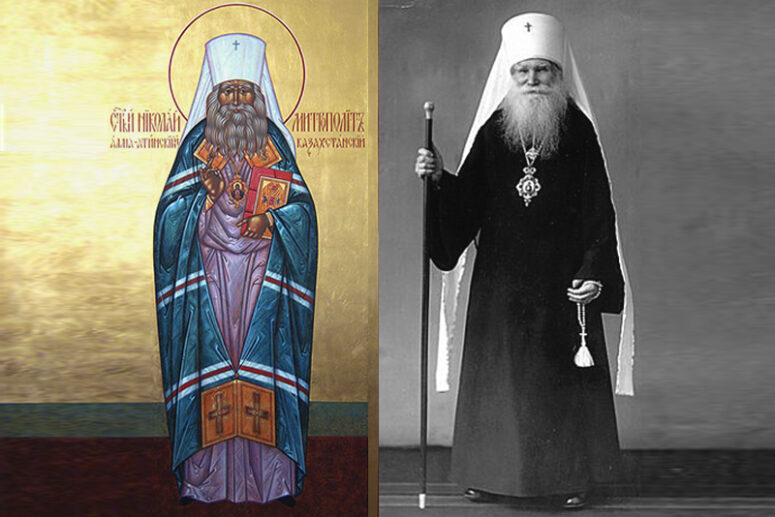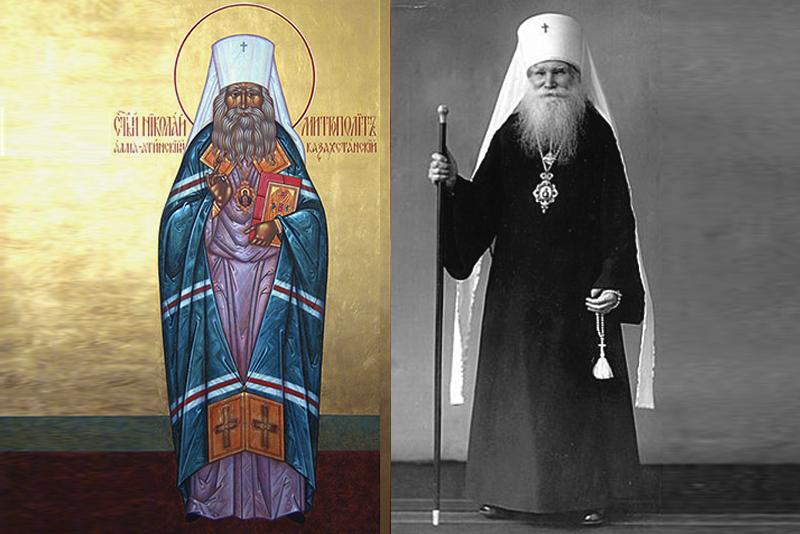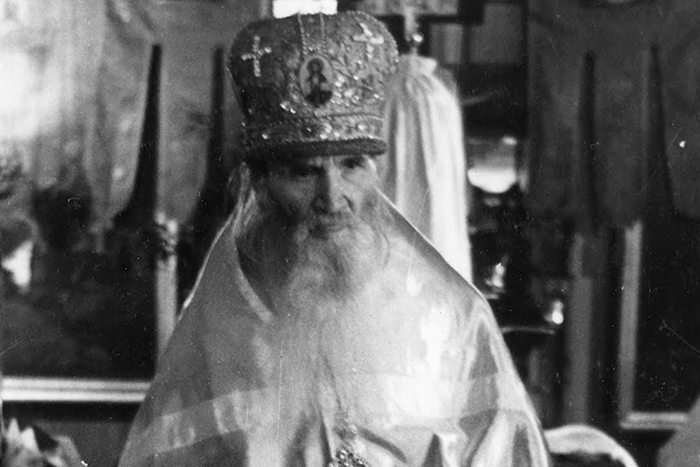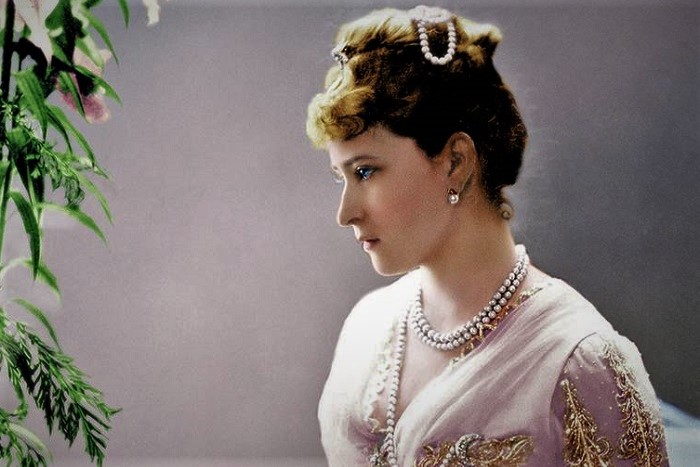
‘We all need to help one another. God said that I needed to help you, to save your life,’ said the Tatar. ‘How did God tell you that?’ the archbishop asked in amazement. ‘I don’t know how. When I was going about my business, God told me ‘Take this old man, he must be saved’,’ the Tatar answered.
Archbishop Nicholas got his first five-year prison sentence in 1932, under Soviet rule. Those were the years when some other church hierarch could simply be put up against the wall or sent to crush granite in northern labor camps.
But Archbishop Nicholas prevented a Jewish massacre in Chernigov during the civil war and once saved a political commissar from death. For that he was “awarded” by the Bolsheviks by “only” 5 years in a central Russia prison.
When he asked the investigator what exactly he was punished for, he received a direct answer, ‘For your popularity. You need to be isolated for some time so that people forget about your existence. You and the words you are preaching have too much authority. You have too strong a following! ”.
But today’s story is not about hiero-confessor’s arduous life, but rather about how the Almighty God saved His servant in Kazakhstan by the hands of a God-fearing Muslim.
In 1941, vladyka1 was sent to exile for 5 more years. The Chekists2 arrested him in June, giving him almost no time to pack. A few months later the archbishop was sent to Kazakhstan in the middle of the winter and thrown out of the train at the Chelkar railway station in Aktobe region with nothing but his underwear and a torn sheepskin coat on.
You cannot go very far wearing such clothes in the cold. The archbishop began begging for alms and compassionate babushkas3 brought him some pants, a hat, a quilted jacket and felt boots. One of the grandmothers agreed to shelter “the old man” (Vladyka was 65 years old) in her barn next to a cow and a pig.
For several months the archbishop wandered from barn to barn and begged for alms so as not to die of hunger. Finally, he got completely exhausted and fell into the snow on the road side.
Archbishop Nicholas woke up in the hospital, where he had been taken by an unknown Tatar. They treated him with sympathy there, healed purulent scabs, removed the lice and fed him a little. Everybody was well-disposed towards the “kind old man” who, as soon as he got a little stronger, tried to help every doctor, every nurse and every patient albeit a little.
But it was war time. The wounded needed beds and the old man had to be discharged, although the doctor who received him knew that he would have to return to begging.
Vladyka already collected all his small belongings and prepared to go out into the street, when the same Muslim Tatar who had previously picked him up freezing by the road came back for him.
All the way to the Tatar’s house, Vladyka, overflowing with gratitude, prayed to God, unable to utter a word. At home, the Tartar and his wife hurried to serve the old man a hot meal with some tea.
It was in the evening when the archbishop gathered his courage and spoke to his saviour:
‘Why did you decide to take part in my life and treat me so kindly? You don’t know me at all…’
‘We need to help one another,’ answered the Tatar, ‘God said that I need to help you, to save your life.’
‘How did God tell you that?’ the bishop asked in amazement.
‘I don’t know how,’ the Tatar answered, ‘when I was going about my business, God told me, ‘Take this old man, he must be saved .”
The Muslim Tatar accepted the old man as his father, and Vladyka spent a long time in his house. Thanks to the efforts of the Tatar, the bishop was able to find his parishioners, who began to come to him in Kazakhstan. That was when all of the town’s residents found out that the elderly beggar from the station was Archbishop Nicholas (Mogilevsky).
In 1945, the archbishop was released early from exile, but remained in Kazakhstan. Here, already as Metropolitan of Alma-Ata and Kazakhstan, he was able to entreat the authorities to open many previously closed churches and prayer houses.
Metropolitan Nicholas survived the exile and reposed in the Lord in 1955 at the age of 81. Despite all the authorities’ efforts, 40,000 people followed his coffin into the cemetery.
In 2000, Metropolitan Nicholas (Mogilevsky) was numbered among the New Martyrs and Confessors of Russia as a hiero-confessor.
“The main thing in the eyes of God is love for Him, which is manifested in love for others. ‘He who loves Me keeps My commandments,’ Christ Himself said that. His main commandment is, “Love one another.”
If we go to church and keep fasts but at the same time quarrel, envy, condemn, even slander each other and our spiritual fathers, then we will suffer double punishment for this.
Active love for neighbor is more pleasing to God than the most difficult ascetic deeds. At the Last Judgement, what will be the first thing the Lord will ask us about? How many bows did we make or how did we fast?
No. He will ask us if we fed the hungry, gave the thirsty a drink, visited the sick, comforted the grieving or gave good advice to the one in difficulty.
What does it mean to be merciful? You can give alms both bodily and spiritually.
If you give a drink to a thirsty one, feed a hungry one, if a beggar comes to you and asks for clothes, and you give him at least a shabby rag to cover his nakedness, then with all that you will show bodily mercy.
Deeds of spiritual mercy are to comfort the grieving person, to give good advice, to prevent someone from sinning or to help a sinner return to the path of salvation.
Our Lord Jesus Christ Himself accepts all alms under the guise of one or another person. We know this for sure. Do not ever miss the opportunity of doing good!” Saint Nicholas wrote.
Translator’s notes:
- Vladyka (Russian Владыка – master) – a way of addressing an Orthodox bishop in Russia.
- Cheka (Russian ЧК) transliterated Russian acronym for All-Russian Extraordinary Commission for Combating Counter-Revolution, Profiteering and Corruption
- Babushka (Russian Бабушка) – grandmother.
Translated by The Catalogue of Good Deeds
Source: https://pravoslavie.fm/interested/istoriya-o-tom-kak-musulmanin-pravoslavnogo-svyatogo-spas/





God bless that Tatar for his kindness to Vladika! He is right. We must help one another.